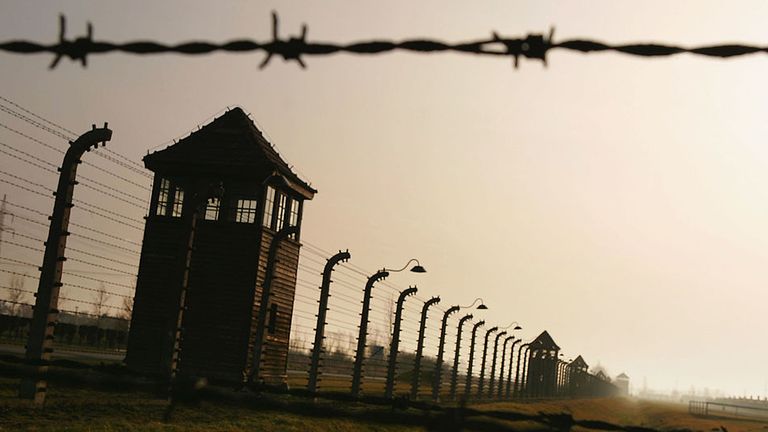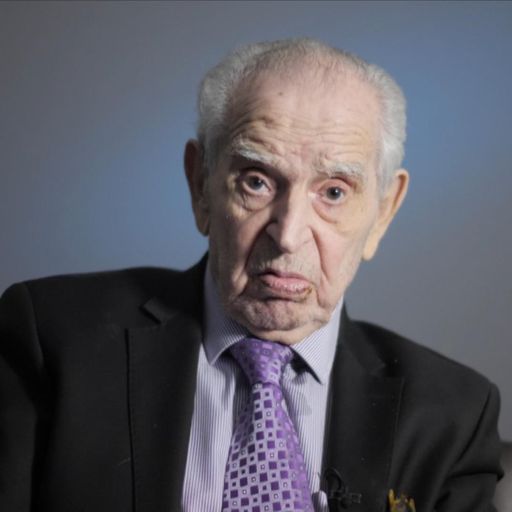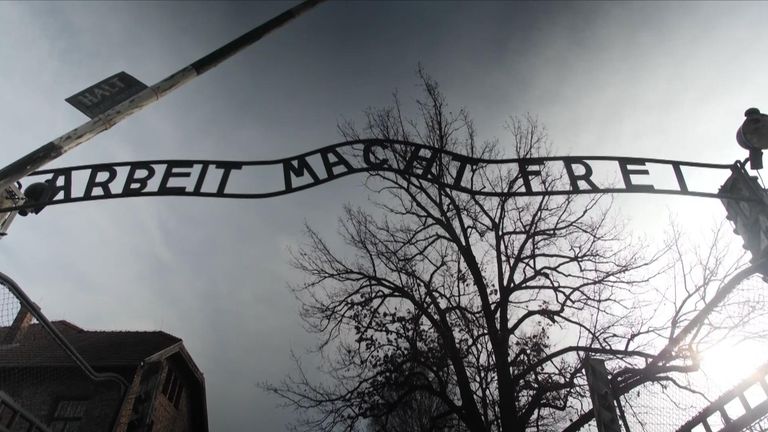Facebook algorithm 'actively promoting' Holocaust denial, report warns
In a number of countries where Holocaust denial is illegal, such as Germany, France and Poland, Facebook does prohibit it.
Monday 17 August 2020 10:42, UK
Facebook's algorithms are "actively promoting" Holocaust denial content, according to new research by the Institute for Strategic Dialogue.
Last week, the social media giant pledged to crack down on antisemitic content, but it does not categorise Holocaust denial as hate speech - and according to the ISD, this means such posts are still spreading on the platform.
The anti-extremism think tank found hundreds of thousands of users across 36 groups on Facebook.
After its researchers clicked through these groups, Facebook then began recommending them further Holocaust denial pages.
Extensive analysis by historians has established that more than 11 million people are believed to have been killed by the German state and its collaborators between 1933 and 1945.
The largest group to be targeted were Jews, of whom approximately six million were murdered in mass shootings, pogroms and in Nazi extermination camps.
Jacob Davey, ISD's senior research manager, told The Guardian: "Facebook's decision to allow Holocaust denial content to remain on its platform is framed under the guise of protecting legitimate historical debate, but this misses the reason why people engage in Holocaust denial in the first place.
"Denial of the Holocaust is a deliberate tool used to delegitimise the suffering of the Jewish people and perpetuate long-standing antisemitic tropes, and when people explicitly do this it should be seen as an act of hatred."
Facebook's algorithm recommended additional pages to users that expressed support for the British fascist Oswald Mosley. He was interred during the Second World War, during which he agitated for peace with Hitler.
The researchers also found Holocaust denial content on other social media platforms, including YouTube, Twitter and Reddit - often promoted with the term "holohoax".
A spokesperson for Facebook said: "We take down any post that celebrates, defends, or attempts to justify the Holocaust."
This notably does not include Holocaust denial - and groups alleging that the murder of six million Jews was a fiction concocted by a Jewish conspiracy remain on the platform.
Facebook continued: "The same goes for any content that mocks Holocaust victims, accuses victims of lying, spews hate, or advocates for violence against Jewish people in any way.
"We also remove groups and pages that discuss Holocaust denial from recommendations and references to it in search predictions.
"While we do not take down content simply for being untruthful, many posts that deny the Holocaust often violate our policies against hate speech and are removed."
In a number of countries where Holocaust denial is illegal, such as Germany, France and Poland, Facebook does prohibit that content.
"Striking the right balance between keeping people safe and allowing free speech is difficult and we know many people strongly disagree with our position," the spokesperson said.
They added: "We are constantly developing and reviewing our policies and consulting with organisations around the world to ensure we're getting it right."







